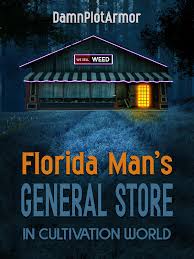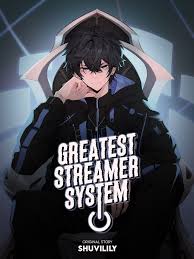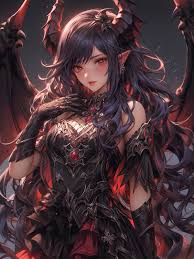The Story in 3 Sentences
A nuclear wasteland survivor named Leo, armed with a lifespan-trading alien artifact, transmigrates into a rigid cultivation world where his chaotic, modern “Florida Man” logic instantly clashes with ancient traditions and martial hierarchies.
His shift from lone wasteland mutant to the proprietor of a bewildering general store stocked with absurd modern goods becomes the catalyst for global pandemonium, turning cultivators into bewildered consumers and sacred sites into chaotic marketplaces.
The direction hurtles towards a surreal, galaxy-spanning finale where his pet cat ascends to cosmic overlord, proving that true power lies not in qi or swords, but in sheer, unadulterated, rule-breaking absurdity.
Why It Stands Out
1. The Unkillable Agent of Chaos
Leo isn’t just overpowered; he’s a walking, talking natural disaster wrapped in cargo shorts. His power comes at the cost of his own lifespan, making every absurd purchase—a gallon of beer, a chainsaw, a live alligator—a darkly hilarious gamble. He doesn’t conquer the world through cultivation; he bewilders it into submission, turning solemn sect elders into coupon-clipping maniacs and ancient beasts into unwilling participants in his BBQ parties. His presence is a constant, glorious violation of the genre’s core tenets.
2. A Store That Sells Sanity (And Buys It Back at a Premium)
The “general store” is more than a plot device; it’s the novel’s beating, anarchic heart. It’s a portal for modern absurdity—overpriced rotten tea, lithium mining career advice, sex toys mistaken for profound artifacts—to flood into a world governed by strict cultivation laws. The store’s inventory, dictated by Leo’s whims and the system’s cruel economy, becomes the source of endless conflict, innovation, and societal collapse, making every transaction a potential world-altering event.
3. Comedy Forged in the Fires of the Apocalypse
The humor isn’t just slapstick; it’s existential. It stems from the brutal collision of a man who has seen the literal end of his world and has nothing left to lose, against a society where every action has cosmic consequence. The jokes are sharp, the situations are ludicrous, and the chapter titles alone (“Florida Man Prophesizes Doomsday, Claims Sexually Aggressive Demoness Would Enslave Men and Cats Would Be Our Saviors”) are a masterclass in comedic escalation, turning every plot point into a viral headline.
Characters That Leave a Mark
There’s Xiaomao – Leo’s enigmatic, gluttonous cat, initially just a scavenger fed scraps, who evolves from a simple pet into the terrifying, galaxy-ruling overlord of the Cathulhu Galaxy, a silent, furry testament to the story’s escalating absurdity.
You’ll meet Ohio Man, who emerges as Leo’s perfect foil and chaotic counterpart, their rivalry crystallizing in moments like the snowstorm mockery, embodying the eternal, ridiculous clash of regional stereotypes amplified to world-shaking proportions.
And Taxi? They’re the one who serves as Leo’s bewildered, often exasperated, local contact or transport, a grounded presence trying to navigate the hurricane of madness that is Leo, representing the ordinary cultivator world’s futile attempt to make sense of the Florida Man phenomenon.
The Flaws Fans Debate
The relentless, absurdist humor can feel repetitive, with the “Florida Man does X outrageous thing” formula wearing thin for some readers over 340+ chapters.
The episodic, gag-driven structure sometimes sidelines deeper world-building or character development beyond Leo and his immediate circle, making the cultivation world feel more like a backdrop than a fully realized setting.
The very premise, while brilliant, can become a constraint; the story’s commitment to its chaotic tone can make genuine emotional stakes or dramatic tension feel secondary or even impossible to sustain.
Must-Experience Arcs
Ch. 1–50: The Wasteland’s Import – Leo arrives, establishes his store in the forest, and begins his campaign of cultural contamination, scamming cultivators, angering vegans with his plants, and searching for an alligator wife, setting the anarchic tone for everything to come.
Ch. 150–250: The Ohio Man Convergence – The rivalry with Ohio Man escalates, bringing large-scale, almost geopolitical chaos, including snowstorm panics and Warhammer 40k-themed arrests, marking the point where Leo’s personal brand of madness becomes a recognized, world-altering force.
Ch. 300–340: The Cathulhu Ascension – Leo prepares to leave, prophesying doomsday while his cat, Xiaomao, ascends to cosmic overlord, concluding the saga with a bang that is equal parts hilarious, bizarre, and strangely poignant, as the ultimate legacy of the Florida Man is a universe ruled by his pet.
Killer Quotes
“I’m leaving this world for good!”
“Call me Florida Man!”
“No BBQ party was without a good cold beer.”
Cultural Impact
The novel’s chapter titles have become legendary, frequently shared as standalone memes for their sheer, unhinged creativity.
It has cultivated a dedicated fanbase that revels in its unique blend of dark post-apocalyptic backstory and relentless, surface-level comedy, often describing it as a “guilty pleasure” or “so bad it’s brilliant.”
It sparked countless online discussions debating whether Leo is a genius, a madman, or a force of nature, solidifying its status as a cult classic within the transmigration comedy subgenre.
Final Verdict
Start Here If You Want:
A non-stop, absurdist comedy that gleefully demolishes cultivation genre conventions.
A protagonist who is less a hero and more a walking, talking agent of hilarious, world-breaking chaos.
A story where the punchline is always bigger, weirder, and more unexpected than the setup.
Study If You Love:
The deconstruction of xianxia tropes through the lens of modern, Western absurdism and consumer culture.
The narrative potential of a character whose primary power is narrative disruption rather than martial prowess.
The exploration of existential themes—loneliness, the value of life, the meaning of legacy—disguised beneath layers of outrageous, beer-fueled antics.
Avoid If You Prefer:
Stories with deep, emotional character arcs or serious, high-stakes dramatic tension.
A consistent, non-episodic plot with a clear, linear progression.
Novels that respect the established rules and power systems of their genre worlds.





